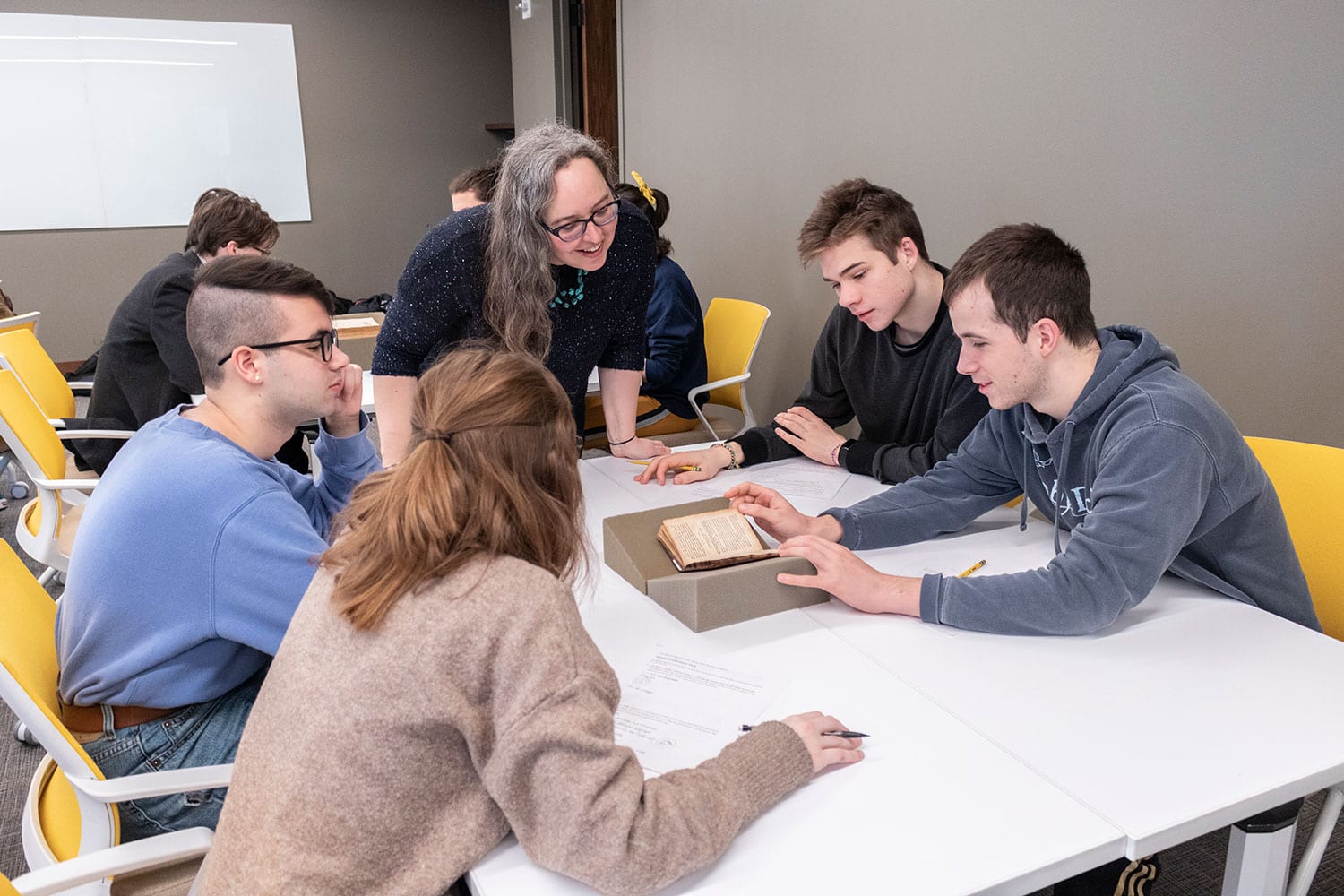Course Title: “Inquiries into Black Study, Language, Justice, and Education”
Co-Taught By: Professor of Education Alice Lesnick, Language Praxis and Fieldwork Facilitator Sabea Evans ‘18, and Dagbani Instructor Issah Rajaa-u
Says Lesnick:
Sabea and I created this course as a hub for transnational and diasporic Black language study and praxis to support students’ experiential and scholarly, collective and personal engagements in freedom struggle and freedom dreaming. The course invites students to think, plan, reflect, and intervene as educators centered by global Black studies. It is situated by the work of the Laɣim Tehi Tuma/”Thinking TogetherLaɣim Tehi Tuma/”Thinking Together” program (LTT), now entering its tenth year. This means that the course connects with a specific community in Northern Ghana–its language and culture–in which the program is rooted.
With the co-teaching of Sabea Evans and Issah Rajaa-u (via Zoom from Ghana), students in the course begin learning Dagbani, one of the languages of Northern Ghana, as part of the course work and as a direct experience of language sustenance in the context of the threat to Black and Indigenous language by colonial and globalized currents. Sabea and Rajaa-u co-authored a multi-media online Dagbani learning curriculum for LTT that they have further developed for this course. Students extend weekly language lessons with a learning partner, and gain an introduction to Dagomba history and culture through guest talks. The class, which is cross-listed in Africana studies and linguistics, is currently the only one in the Tri-Co presently in which students study an African language.
Drawing on a wide range of sources and in dialogue with several guest speakers, the course considers education and language as co-constitutive and considers how, in Weil’s words, not to respect the empire of force, in this case by way of rethinking how people are schooled in and by language and engaging pan-Africanist and other liberation approaches to the design of curriculum and pedagogy. Students integrate these topics with their own learning goals through weekly journal writing, a personally relevant inquiry-based research project, and a course portfolio on global education anchored by Black studies.
Additionally, as a community-engaged course, students may undertake an optional remote site-based internship with one of LTT’s partner organizations in Ghana (an early education center, community radio station, computer-literacy training center, or with LTT itself) for a half credit.
Says Evans:
Something I find nourishing about the course from my own perspective is that, with each class, we’re really building a learning community from the ground up. Just because we all come into the same room, at the same time, and look at the same syllabus doesn’t mean we automatically have the trust necessary for digging into this work and into ourselves in such a public and academic setting. We’re really intentional about getting to know each other as people who all have practical stakes in and personal translations of these topics. Part of our praxis is exemplified in that we are able to both hold all of our expertise and experiences as viable hubs of knowledge while also acknowledging the permeability of and boundaries around our individual educations and that of historically exclusive institutionally based learning. I consider us all peers in learning about and crafting these senses of liberatory pedagogy that are centered by Black studies and feel grateful to have more access to this type of learning community now than when I was studying at Haverford because of the investments that current students and more recent alumni have been making in re-focusing their curricula and relationships within the Bi-Co toward accountability, justice, and thriving.
Learn more about other classes offered by the Bi-Co Education Program.

